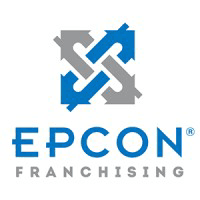Not sure if Property Sellwise is right for you?
Talk to a Franchise Advisor who can match you with your perfect franchise based on your goals, experience, and investment range.
Talk to an ExpertProperty Sellwise
How much does Property Sellwise cost?
Initial Investment Range
$105,950 to $606,200
Franchise Fee
$53,400 to $342,600
As a Property Sellwise® franchisee, you will operate a business in the wholesale real estate industry focusing primarily on assigning real estate contracts for single family and multi-family and with a lesser focus on flipping properties and purchasing and renting properties.
Enjoy our partial free risk analysis below
Unlock the full risk analysis to access 9 more categories covering 100+ risks.
Property Sellwise June 30, 2025 FDD Risk Analysis
Free FDD Library AI Analysis Date: August 22, 2025
DISCLAIMER: Not Legal Advice - For Informational Purposes Only. Consult With Qualified Franchise Professionals.
Franchisor Stability Risks
Start HereDisclosure of Franchisor's Financial Instability
High Risk
Explanation
Property Sellwise Franchising, LLC's (Property Sellwise) audited financials show signs of instability. As a new entity (formed March 2024), its 2024 balance sheet shows a members' deficit (negative net worth), negative working capital, and a net loss. The company appears reliant on a large payable to an affiliate for funding. This financial weakness could potentially impact its ability to provide support or grow the system, increasing your risk as a franchisee.
Potential Mitigations
- Your accountant must conduct a thorough review of the franchisor's financials, including all footnotes and the related party transactions.
- A business advisor can help you assess if the franchisor has sufficient capital to fund its operations and support obligations without relying on new franchise sales.
- Inquire with your attorney about the potential need for a financial performance bond or escrow of your initial fees, if required by your state.
High Franchisee Turnover
Low Risk
Explanation
This risk was not identified in the FDD package. As a new system that sold its first franchise in 2024, there is no history of franchisee turnover. However, monitoring franchisee turnover, as disclosed in future FDD Item 20 updates, is critical. High turnover can be a significant indicator of systemic problems, such as lack of profitability, insufficient franchisor support, or franchisee dissatisfaction. You should carefully review this data in subsequent years.
Potential Mitigations
- It is important to have your accountant analyze Item 20 data in any future FDDs to calculate the annual turnover rate.
- If future turnover appears high, a business advisor can help you compare it to industry benchmarks to assess its significance.
- Your attorney can help you formulate questions for current and former franchisees regarding their satisfaction and reasons for leaving the system.
Rapid System Growth
Medium Risk
Explanation
The FDD indicates the franchise system is very new and growing. While growth can be positive, rapid expansion without a corresponding increase in support infrastructure can strain a franchisor's resources. Given the franchisor's limited operating history and current financial state, there is a potential risk that rapid growth could outpace its ability to provide the promised training, marketing, and operational support to all franchisees effectively, which may impact your business performance.
Potential Mitigations
- A business advisor can help you question the franchisor about their specific plans for scaling support staff and infrastructure to match franchise growth.
- Speaking with the earliest franchisees about their experiences with the quality and timeliness of support can provide valuable insight.
- Your accountant should review the franchisor's financial statements to assess if they have the resources to sustain and support rapid expansion.
New/Unproven Franchise System
High Risk
Explanation
Property Sellwise is a new franchisor, having been organized in March 2024 and selling its first franchise late that year. Investing in a new, unproven system carries inherent risks. The business model, operational support, and brand recognition are not yet well-established. This could lead to unforeseen challenges, a higher risk of failure, and reliance on a franchisor that is still developing its own systems and support structures while you are operating.
Potential Mitigations
- Conduct extensive due diligence on the management team's prior industry experience with your business advisor.
- Your accountant should help you create conservative financial projections, as there is limited historical data for the franchise system.
- It is wise to consult your attorney about negotiating more protective terms in the franchise agreement to compensate for the higher risk of a new system.
Possible Fad Business
Medium Risk
Explanation
The business operates in the real estate wholesaling and investment market, which can be subject to significant fluctuations based on economic cycles, interest rates, and local market dynamics. While real estate is an established industry, the specific strategies and focus of this model may be dependent on current market trends. A prospective franchisee could find that a downturn in the real estate market may significantly impact the business's viability and long-term demand.
Potential Mitigations
- Engage a business advisor to independently research the long-term sustainability of the wholesale real estate model in your specific market.
- Evaluate the business's resilience to economic downturns and rising interest rates with your financial advisor.
- You should discuss the franchisor's strategies for adapting to different real estate cycles with current franchisees.
Inexperienced Management
High Risk
Explanation
The franchisor entity, Property Sellwise, was formed in March 2024, and its management team has no prior experience in operating a franchise system, although they have experience in the real estate industry. Managing a franchise network requires different skills than running a single business, including providing training, support, and marketing for a diverse group of owners. This lack of direct franchising experience could present a risk regarding the quality and effectiveness of the support you receive.
Potential Mitigations
- Your business advisor can help you assess whether the management team's skills are transferable to managing a franchise system.
- It is important to ask the franchisor if they have engaged experienced franchise consultants or attorneys to guide their development.
- A discussion with the first franchisee about the quality of training and support they have received would be highly informative.
Private Equity Ownership
Low Risk
Explanation
This risk was not identified in the FDD package. FDD Item 1 does not indicate that the franchisor is owned or controlled by a private equity firm. This type of ownership can sometimes introduce risks related to prioritizing short-term investor returns over the long-term health of the franchise system. Since this is not the case here, this specific risk does not appear to be present.
Potential Mitigations
- Your attorney should always confirm the ownership structure disclosed in Item 1 to ensure there are no undisclosed controlling entities.
- A business advisor can help you understand the potential impacts of different ownership structures on a franchise system's strategy.
- Ongoing monitoring of any changes in the franchisor's ownership throughout the franchise term is a prudent practice.
Non-Disclosure of Parent Company
Medium Risk
Explanation
This risk was not identified in the FDD package. The franchisor has disclosed its affiliate, Sellwise, LLC, in Item 1. However, since the franchisor is a new entity and its financials show a heavy reliance on a payable to this affiliate, the affiliate's financial health is material to understanding the overall stability of the system. The FDD does not include the affiliate's financial statements, which could obscure a complete picture of the enterprise's financial backing.
Potential Mitigations
- A franchise attorney can help you request the financial statements of the affiliate, Sellwise, LLC, given its critical role in funding the franchisor.
- Your accountant should review the nature and terms of the inter-company payables to understand the relationship and dependencies.
- It is advisable to discuss the long-term financial relationship between the franchisor and its affiliate with a business advisor.
Predecessor History Issues
Low Risk
Explanation
This risk was not identified in the FDD package. Item 1 of the FDD does not disclose any predecessors for Property Sellwise. This is consistent with the fact that the franchisor is a new entity formed in 2024. Therefore, there are no inherited issues from a prior company to consider. Risks related to predecessors can include undisclosed historical problems, litigation, or high franchisee turnover under a previous owner, but these are not applicable here.
Potential Mitigations
- Your attorney should always verify the corporate history disclosed in Item 1 to confirm the absence of any undisclosed predecessors.
- When evaluating any franchise, asking existing franchisees about the company's history can provide valuable context; a business advisor can help frame these questions.
- Independent online research on the company and its founders can sometimes reveal connections to past business ventures.
Pattern of Litigation
Low Risk
Explanation
This risk was not identified in the FDD package. Item 3 of the FDD states that there is no litigation that requires disclosure. A pattern of lawsuits, especially those from franchisees alleging fraud or misrepresentation, can be a major red flag about a franchisor's practices. The absence of such litigation is a positive factor, although it is also consistent with the franchisor being a new entity with a very limited operating history.
Potential Mitigations
- It is prudent to have your attorney conduct an independent public records search for litigation involving the franchisor or its principals.
- You should periodically ask existing franchisees if they are aware of any disputes within the system.
- A business advisor can help you establish a process for monitoring the franchisor's legal disclosures in future FDDs.
Disclosure & Representation Risks
Example Risk: Franchisee Financial Obligations
Blue Risk
Explanation
This risk involves the financial obligations that a franchisee must meet, including initial fees, ongoing royalties, and other required payments. Understanding these obligations is crucial for long-term success.
Potential Mitigations
- Carefully review the Franchise Disclosure Document (FDD) and consult with a franchise attorney to fully understand all financial commitments before signing.
- Conduct regular risk assessments
- Implement monitoring and reporting systems
Unlock Full Risk Analysis
Purchase the complete risk review to see all 102 risks across all 10 categories.
Financial & Fee Risks
Example Risk: Franchisee Financial Obligations
Blue Risk
Explanation
This risk involves the financial obligations that a franchisee must meet, including initial fees, ongoing royalties, and other required payments. Understanding these obligations is crucial for long-term success.
Potential Mitigations
- Carefully review the Franchise Disclosure Document (FDD) and consult with a franchise attorney to fully understand all financial commitments before signing.
- Conduct regular risk assessments
- Implement monitoring and reporting systems
Unlock Full Risk Analysis
Purchase the complete risk review to see all 102 risks across all 10 categories.
Legal & Contract Risks
Example Risk: Franchisee Financial Obligations
Blue Risk
Explanation
This risk involves the financial obligations that a franchisee must meet, including initial fees, ongoing royalties, and other required payments. Understanding these obligations is crucial for long-term success.
Potential Mitigations
- Carefully review the Franchise Disclosure Document (FDD) and consult with a franchise attorney to fully understand all financial commitments before signing.
- Conduct regular risk assessments
- Implement monitoring and reporting systems
Unlock Full Risk Analysis
Purchase the complete risk review to see all 102 risks across all 10 categories.
Territory & Competition Risks
Example Risk: Franchisee Financial Obligations
Blue Risk
Explanation
This risk involves the financial obligations that a franchisee must meet, including initial fees, ongoing royalties, and other required payments. Understanding these obligations is crucial for long-term success.
Potential Mitigations
- Carefully review the Franchise Disclosure Document (FDD) and consult with a franchise attorney to fully understand all financial commitments before signing.
- Conduct regular risk assessments
- Implement monitoring and reporting systems
Unlock Full Risk Analysis
Purchase the complete risk review to see all 102 risks across all 10 categories.
Regulatory & Compliance Risks
Example Risk: Franchisee Financial Obligations
Blue Risk
Explanation
This risk involves the financial obligations that a franchisee must meet, including initial fees, ongoing royalties, and other required payments. Understanding these obligations is crucial for long-term success.
Potential Mitigations
- Carefully review the Franchise Disclosure Document (FDD) and consult with a franchise attorney to fully understand all financial commitments before signing.
- Conduct regular risk assessments
- Implement monitoring and reporting systems
Unlock Full Risk Analysis
Purchase the complete risk review to see all 102 risks across all 10 categories.
Franchisor Support Risks
Example Risk: Franchisee Financial Obligations
Blue Risk
Explanation
This risk involves the financial obligations that a franchisee must meet, including initial fees, ongoing royalties, and other required payments. Understanding these obligations is crucial for long-term success.
Potential Mitigations
- Carefully review the Franchise Disclosure Document (FDD) and consult with a franchise attorney to fully understand all financial commitments before signing.
- Conduct regular risk assessments
- Implement monitoring and reporting systems
Unlock Full Risk Analysis
Purchase the complete risk review to see all 102 risks across all 10 categories.
Operational Control Risks
Example Risk: Franchisee Financial Obligations
Blue Risk
Explanation
This risk involves the financial obligations that a franchisee must meet, including initial fees, ongoing royalties, and other required payments. Understanding these obligations is crucial for long-term success.
Potential Mitigations
- Carefully review the Franchise Disclosure Document (FDD) and consult with a franchise attorney to fully understand all financial commitments before signing.
- Conduct regular risk assessments
- Implement monitoring and reporting systems
Unlock Full Risk Analysis
Purchase the complete risk review to see all 102 risks across all 10 categories.
Term & Exit Risks
Example Risk: Franchisee Financial Obligations
Blue Risk
Explanation
This risk involves the financial obligations that a franchisee must meet, including initial fees, ongoing royalties, and other required payments. Understanding these obligations is crucial for long-term success.
Potential Mitigations
- Carefully review the Franchise Disclosure Document (FDD) and consult with a franchise attorney to fully understand all financial commitments before signing.
- Conduct regular risk assessments
- Implement monitoring and reporting systems
Unlock Full Risk Analysis
Purchase the complete risk review to see all 102 risks across all 10 categories.
Miscellaneous Risks
Example Risk: Franchisee Financial Obligations
Blue Risk
Explanation
This risk involves the financial obligations that a franchisee must meet, including initial fees, ongoing royalties, and other required payments. Understanding these obligations is crucial for long-term success.
Potential Mitigations
- Carefully review the Franchise Disclosure Document (FDD) and consult with a franchise attorney to fully understand all financial commitments before signing.
- Conduct regular risk assessments
- Implement monitoring and reporting systems
Unlock Full Risk Analysis
Purchase the complete risk review to see all 102 risks across all 10 categories.










